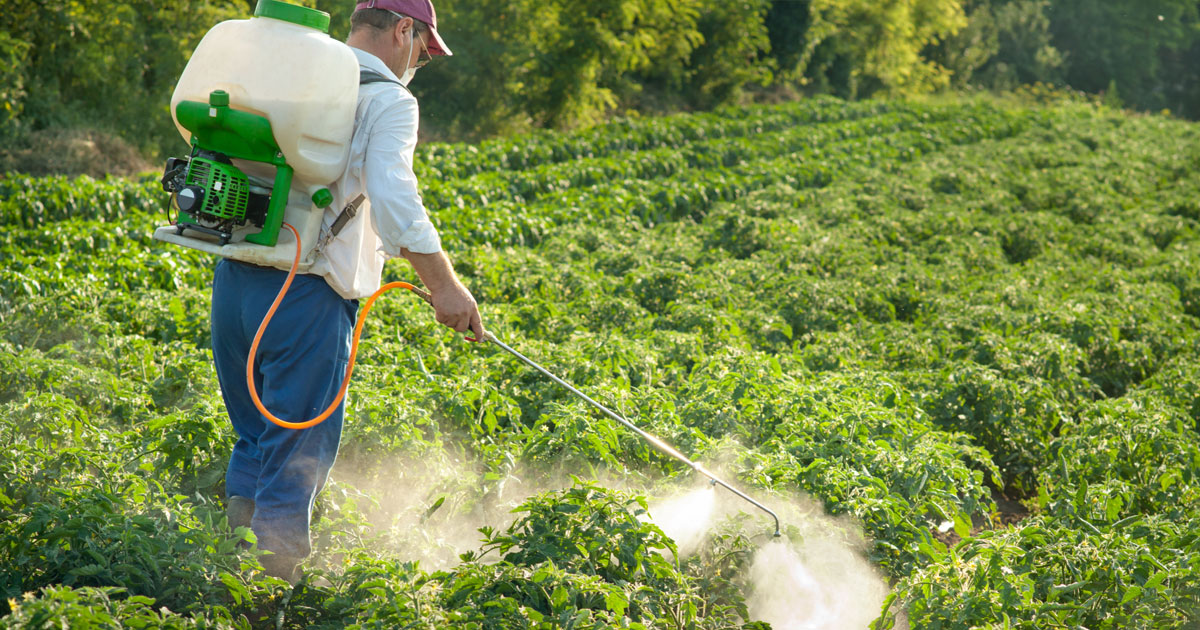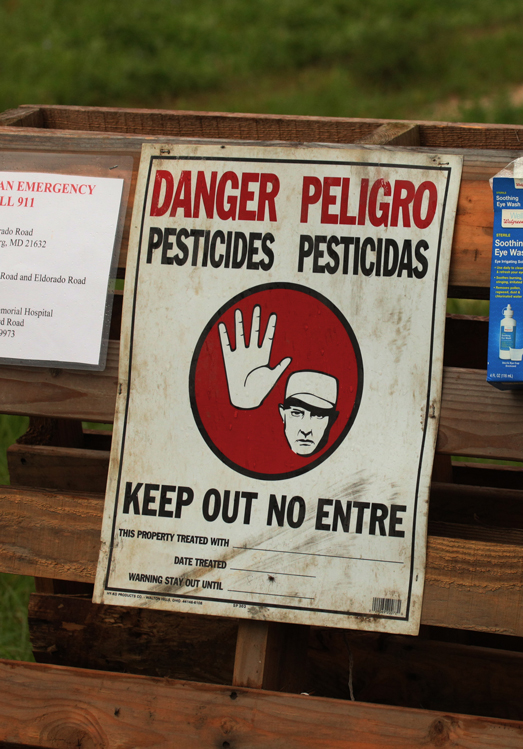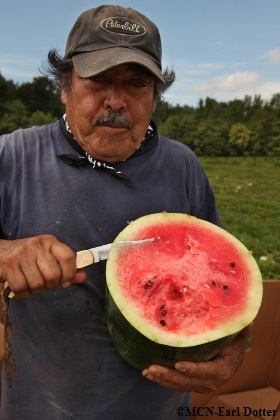- Who We Are
- Clinician Employment
- Publications
- Witness to Witness (W2W)
- Kugel & Zuroweste Health Justice Award
- Your Voice Matters: Photovoice Project
Announcements
Close Announcements⇧

Farmworkers face substantial health risks at their jobs, including exposure to pesticides. At Migrant Clinicians Network, we have spent decades fighting for a stronger Worker Protection Standard.
![]()

Pesticide Poisoning in Monterey: What Went Wrong and What Comes Next?
Last month, we wrote about a pesticide poisoning that sickened over 50 agricultural workers in Bakersfield; the neurotoxic pesticide chlorpyrifos is thought to be responsible.
![]()
Children in the Fields: Environmental Protection Agency Reconsiders Minimum Age Protections
Two years ago, Juan,* a sixteen-year-old farmworker, was tasked to apply pesticides to a field of tobacco in North Carolina. Juan mixed and applied the pesticides with a backpack sprayer for several days.
![]()
Briefing: A Clinician's Call for Safer Farmworkers and Families
MCN's Chief Medical Officer Ed Zuroweste joined farmworkers and allied groups to brief members of Congress and their staffers about the urgent need for an update to EPA's Worker Protection Standard. Read what Ed Zuroweste had to say.
 MCN worked for over 15 years with the EPA and other stakeholders to strengthen the Worker Protection Standard. When the proposed revisions were announced on February 20, 2014, MCN began intensive work to ensure that clinicians had a voice in the public comment period.
MCN worked for over 15 years with the EPA and other stakeholders to strengthen the Worker Protection Standard. When the proposed revisions were announced on February 20, 2014, MCN began intensive work to ensure that clinicians had a voice in the public comment period.
MCN collaborated with the EPA to host the webinar, "National Conversation: Strengthening the Worker Protection Standard." MCN drafted and submitted a National Clinician Sign-On Letter to the EPA on August 18, 2014 with 2,343 clinician signatures. MCN also submitted technical comments focusing on the need to prepare and equip clinicians to protect workers exposed to pesticides. Read more about MCN's work to strengthen the WPS during the public comment period here.
MCN Endorses EPA's Efforts to Strengthen Farmworker Protections
Migrant Clinicians Network (MCN) endorses the proposed changes announced this week by the Environmental Protection Agency to strengthen the Worker Protection Standard.
"We congratulate this administration for advancing these critically important protections for the nation’s farm workers," said Amy Liebman, Director of Environmental and Occupational Health for MCN. "For far too long, this essential labor force has been treated as second class. We are encouraged that these changes will finally afford farm workers stronger safeguards that will protect their safety and health, ensuring a viable workforce, capable of putting food on our table."
MCN has spent more than a decade advocating for increased protections in the Worker Protection Standard of the Federal Insecticide, Fungicide and Rodenticide Act which was passed in 1947.
MCN stands behind stronger regulations and would like to see a WPS that includes:
- A more robust and frequent training regimen that ensures that all workers learn what their risks are, and how to limit those risks by properly protecting themselves and their families from exposure;
- Additional protections for workers who apply pesticides, including medical monitoring, effective respiratory protection such as fit testing for respirators, and a minimum age for all handlers;
- Improved worker access to information about what pesticides have been applied in their workplace and related health effects;
- Decontamination supplies for all workers on site and training on how to handle emergencies;
- Better notification for workers of when pesticides are being applied and tightening of early entry exceptions;
- Better controls for pesticide mixing and loading;
- Better whistle blower protections for workers filing complaints and reporting exposures.

The EPA estimates that there are 10,000 to 20,000 workers every year who suffer from acute pesticide poisoning. And that number is probably low because farm workers don't often report exposures. But for those workers who do see a doctor, information is often the key.
According to the Centers for Disease Control, short-term effects of pesticide exposures can include stinging eyes, rashes, blisters, nausea, headaches, respiratory problems and even death. Cumulative long-term exposures can increase the risk for farm workers and their children of serious chronic health problems such as cancer, birth defects, neurological impairments and Parkinson's disease.
"Well trained and informed workers will know how to relay important life-saving information to doctors and nurses to help diagnose and treat them. The proposed changes to the Worker Protection Standard are a step in the right direction to keep people who work tirelessly to feed our nation safer on the job," said Dr. Ed Zuroweste, Chief Medical Officer for MCN.
"As a physician caring for farm workers I am often frustrated by the limits of my ability to treat a worker overexposed to pesticides," Zuroweste said. "But beyond what I experience in the exam room I am most frustrated that what could easily be avoided by prevention is only addressed at the difficult moment of post exposure diagnosis and treatment. It is the responsibility of our protective agencies to safeguard our workers."
###
Since its inception in 1984, MCN has worked to be a force for health justice by creating practical solutions at the intersection of poverty, migration, and health. MCN now represents more than 10,000 health care professionals working to improve the health of migrant and immigrant workers and their families. For more information about MCN and the WPS, visit www.migrantclinician.org or contact Amy Liebman at aliebman@migrantclinician.org




